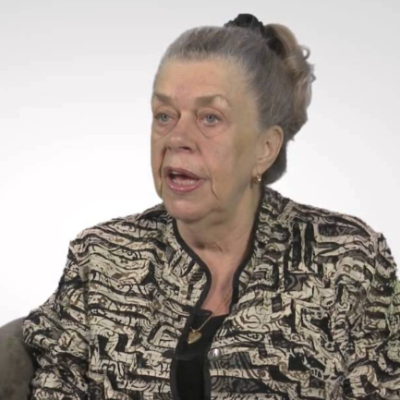This production of Der fliegende Holländer, which premiered at the Met in March 2020 for only three performances before the house closed down due to the pandemic, now features an entirely new cast. This time around it is the sumptuous singing of both the principals and the chorus that sustains François Girard’s subdued and largely static staging.
Tomasz Konieczny, who triumphed in his 2019 company debut as Alberich in Das Rheingold, stars as the haunted sea captain, condemned to roam the seas in his ghostly ship until redeemed by love. His Dutchman is a complex character – a tragic figure seething with anger against his accursed fate, but capable of great tenderness when he believes he has found his salvation. Vocally and dramatically gripping in his despairing Act 1 monologue, “Die frist ist um”, he modulated his bright and forceful baritone to its most lyrical in his glorious second act duet with Senta, one of the high points of the evening.
He was especially well-paired with Elza van den Heever as Senta, the woman who yearns to be the accursed seafarer’s salvation. Her flexible soprano was exquisite in her big Act 2 ballad that describes the Dutchman’s fate and her own role in resolving it. She hurled her rich and powerful voice into dazzling top notes and then pulled back to purest pianissimo in the gentle, more pensive passages. Consumed by infatuation, she made a deeply moving Senta, her singing colored with longing.
As Erik, the hunter who wants to marry Senta, Eric Cutler endowed the role with uncommon pathos, his vibrant, highly polished tenor displaying gorgeous tone and elegantly expressive phrasing. His third act cavatina “Willst jenes tag du nicht mehr entsinnen”, in which he recalls their past happiness together and seeks assurance of her love, was heartbreaking.
Dimitry Belosselskiy used his weighty and characterful bass to effectively portray Daland, Senta’s father, as a strong but unscrupulous man who eagerly sells off his daughter to the Dutchman in return for great wealth. The two smaller roles were less evenly cast. As Senta’s nurse, Eve Gigliotti made the most of her dark mezzo in her appearances, but tenor Richard Trey Smagur was a disappointingly rough-voiced Steersman.
The magnificent Met Opera Chorus was in splendid form for this chorus-intense work. The men sang with thrilling power and handsome tone throughout the evening, and the women, their voices tinged with tender sensitivity, made a strong contribution to the drama of the second act.
Girard’s unremittingly dark and often motionless production – set mostly on black and gray rocks, with the characters (except for Senta in a bright red dress) costumed in dreary grays, blues and black – highlights the work’s ghostly ambience, as does the large and tearful eye projected on to the rear wall of the stage. A dancer (a Senta double) gazes at it as she moves her body through a series of exaggerated representations of obsessive yearning during the overture, a cliched touch that – along with the video projections of a maelstrom – lessens the impact of Wagner’s breathtaking music, which requires no such theatrics to make the roiling ocean come alive with pulsating vigor.
Making his Met debut in this run, Thomas Guggeis conducted a well-paced, vivid and confident – if not always totally thrilling – reading of the score. The Met Orchestra was its most animated during the iconic overture, and the quieter passages were suitably graceful.
A few quibbles notwithstanding, this Holländer, buoyed by a splendid cast and impeccable choral singing, made for an extremely enjoyable and exciting night at the opera.




